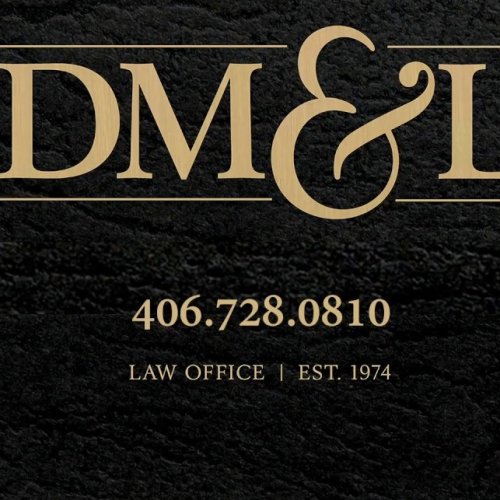Best Child Abuse Lawyers in Missoula
Share your needs with us, get contacted by law firms.
Free. Takes 2 min.
Free Guide to Hiring a Family Lawyer
List of the best lawyers in Missoula, United States
About Child Abuse Law in Missoula, United States
Child abuse laws in Missoula, United States, aim to protect the physical, emotional, and psychological wellbeing of children. These laws cover a range of situations including neglect, emotional abuse, physical abuse, and sexual abuse. Violation of these laws can result in serious consequences, such as criminal charges, imprisonment, and losing custody of the child. Agencies such as the Department of Public Health and Human Services in Montana are responsible for ensuring the safety of children under these laws.
Why You May Need a Lawyer
There could be several scenarios when you might require legal assistance in cases of child abuse. For instance, you may be a family member or guardian suspecting abuse and need advice on reporting and legal procedures. Or you could be a teacher or professional required by law to report suspected abuse but unsure how to proceed. In some cases, you might be accused of child abuse and need defense representation. A knowledgeable lawyer can provide guidance assistance, defend your rights, or help you navigate the complex legal system.
Local Laws Overview
The Montana Child Abuse Reporting laws, applied in Missoula, mandate that certain professionals like educators, healthcare professionals, and law enforcement officers must report reasonable suspicions of child abuse. Severe neglect, physical abuse, or sexual abuse in any form is considered illegal under the Montana Child Abuse laws. Suitably, the state intervenes to protect the child and hold perpetrators accountable. Parents or guardians can face serious criminal charges depending on the severity of the abuse.
Frequently Asked Questions
1. What constitutes child abuse under the law in Missoula, US?
Child abuse is defined as any situation where a child is exposed to sexual exploitation, physical harm, emotional harm, and negligence, intentionally or as a result of lack of care.
2. What should I do if I suspect child abuse?
If you suspect child abuse, you should immediately report it to the Department of Public Health and Human Services in Montana or your local law enforcement agency.
3. What happens after a report of child abuse is made?
Once a report is made, an investigation is initiated by Child Protection Services. If the allegations are proven true, actions such as counseling, parenting classes, or legal action can be taken.
4. Can someone be falsely accused of child abuse?
Yes, false allegations of child abuse can occur. If accused, it's crucial to seek legal counsel immediately to protect your rights and reputation.
5. What are the consequences of child abuse?
Consequences of child abuse can range from mandatory participation in parenting programs, supervised visitation, to loss of child custody. In severe cases, perpetrators can face criminal charges with potential jail time.
Additional Resources
The Department of Public Health and Human Services in Montana offers resources for signs of abuse, reporting procedures, and supportive services. Nonprofits such as ChildWise, Montana Children's Trust Fund, and the National Center for Victims of Crime also provide resources and support for victims of child abuse.
Next Steps
If you need legal support in a case of child abuse, the first step is to contact a lawyer specializing in child abuse law. They will guide you through the legal process, protect your rights, or provide counsel on what actions you can take. In case of immediate danger, contact your local law enforcement agency immediately.
Lawzana helps you find the best lawyers and law firms in Missoula through a curated and pre-screened list of qualified legal professionals. Our platform offers rankings and detailed profiles of attorneys and law firms, allowing you to compare based on practice areas, including Child Abuse, experience, and client feedback.
Each profile includes a description of the firm's areas of practice, client reviews, team members and partners, year of establishment, spoken languages, office locations, contact information, social media presence, and any published articles or resources. Most firms on our platform speak English and are experienced in both local and international legal matters.
Get a quote from top-rated law firms in Missoula, United States — quickly, securely, and without unnecessary hassle.
Disclaimer:
The information provided on this page is for general informational purposes only and does not constitute legal advice. While we strive to ensure the accuracy and relevance of the content, legal information may change over time, and interpretations of the law can vary. You should always consult with a qualified legal professional for advice specific to your situation.
We disclaim all liability for actions taken or not taken based on the content of this page. If you believe any information is incorrect or outdated, please contact us, and we will review and update it where appropriate.









